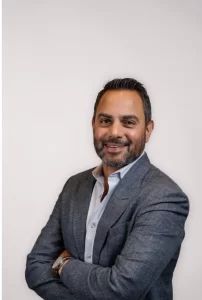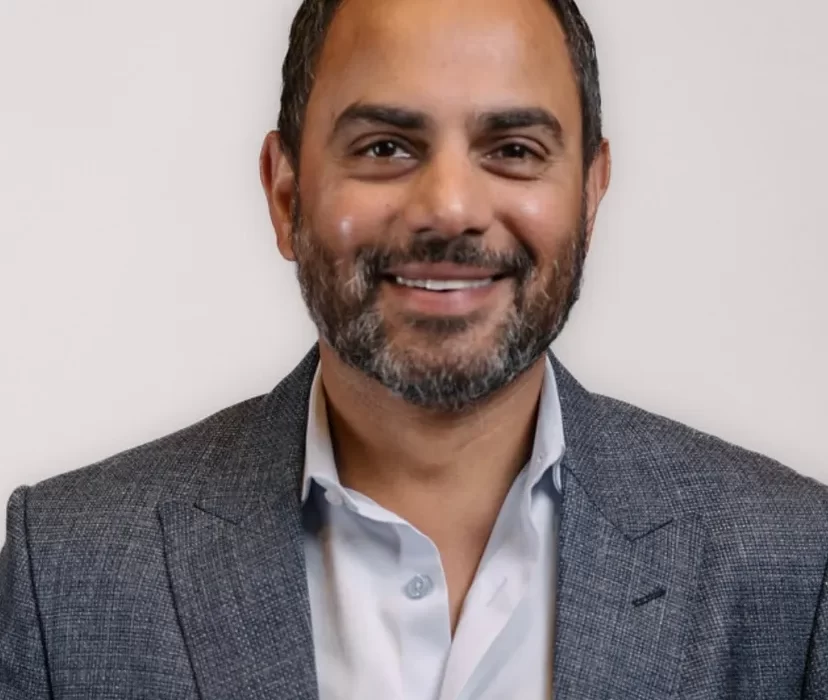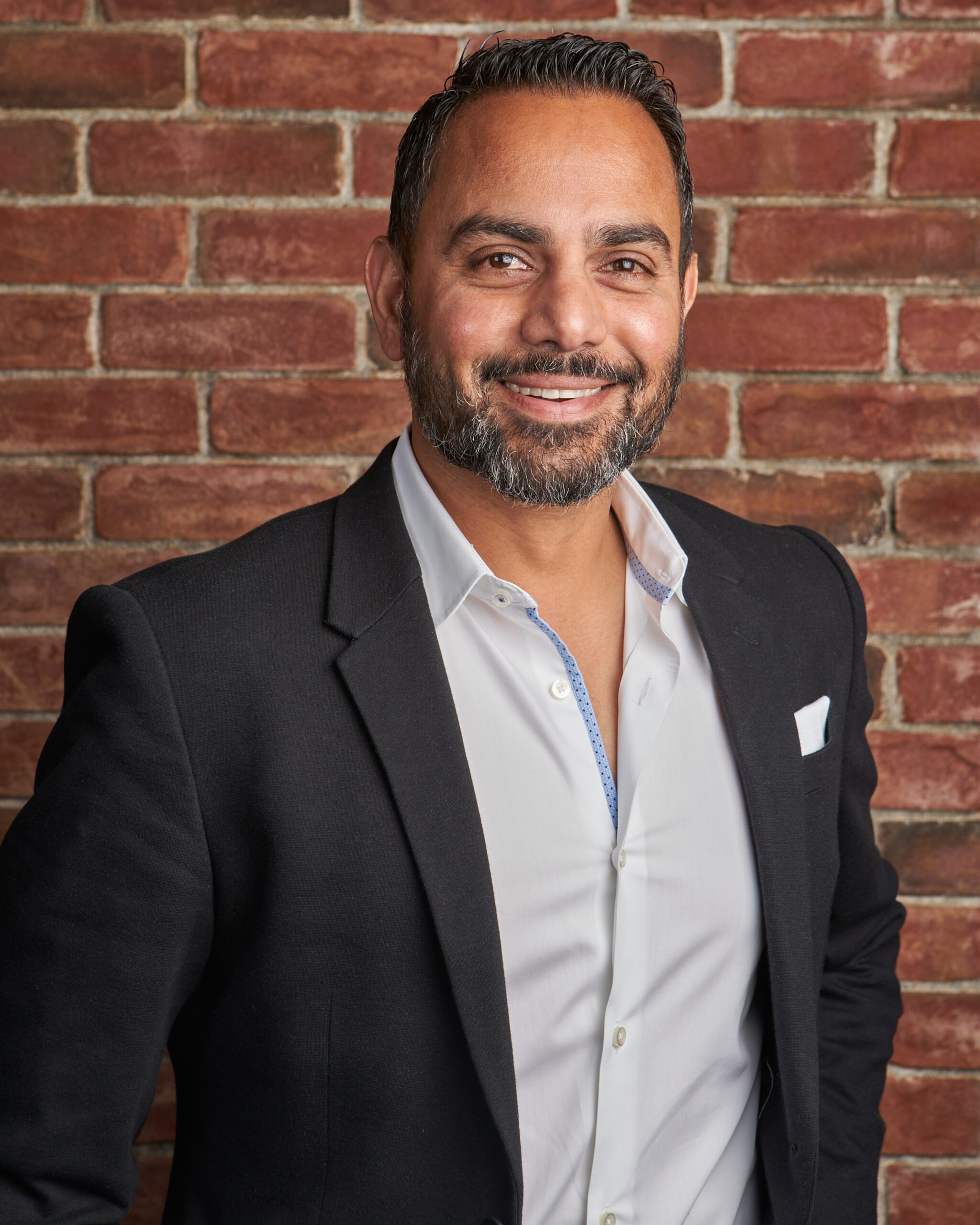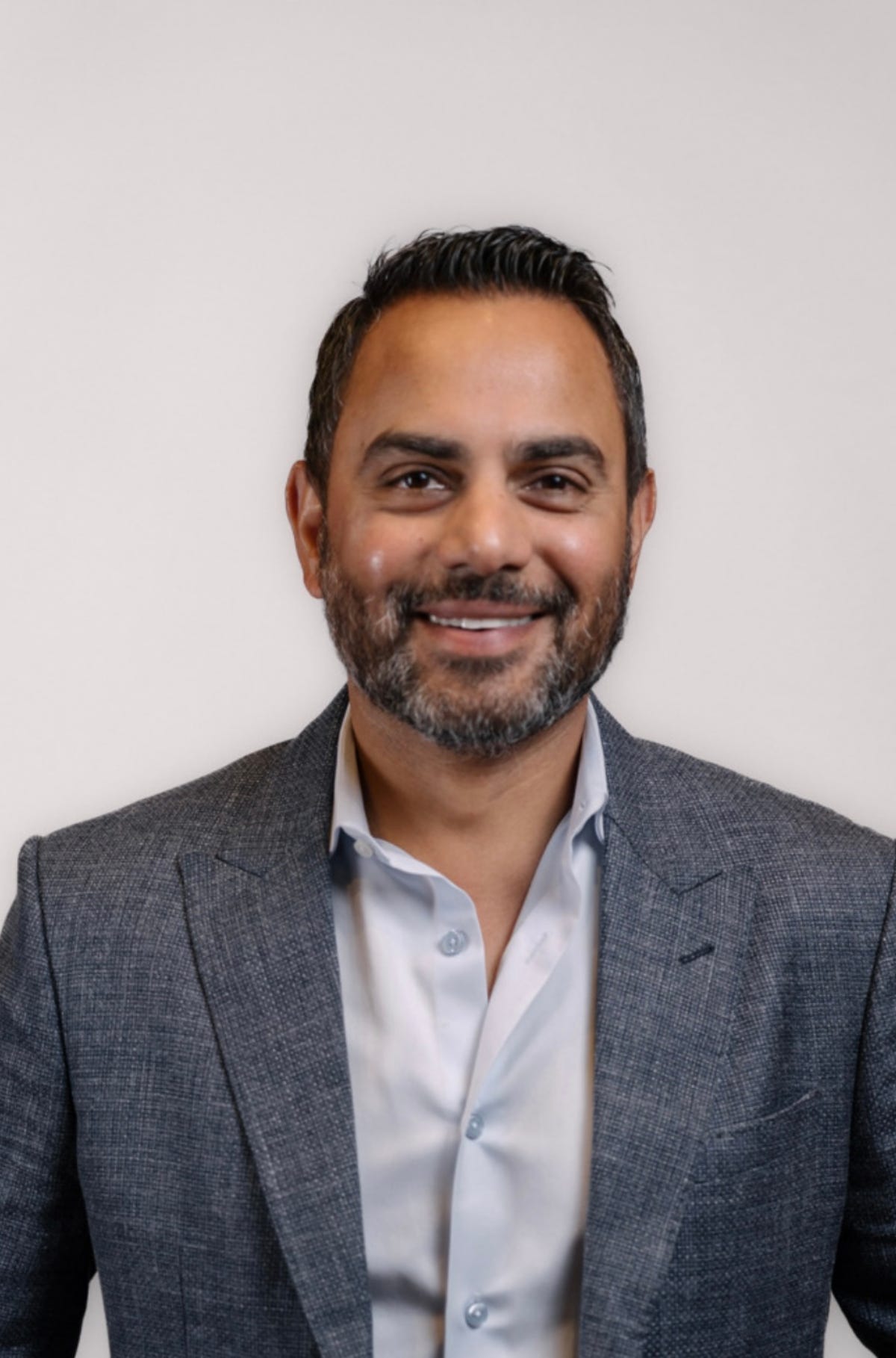Akki Patel On How To Successfully Ride The Emotional Highs & Lows Of Being An Entrepreneur
“Build yourself a strong team and enjoy the people you’re surrounded with.”
Being a founder, entrepreneur, or a business owner can have many exciting and thrilling moments. But it is also punctuated with periods of doubt, slump, and anxiety. So how does one successfully and healthily ride the highs and lows of Entrepreneurship? In this series, called “How To Successfully Ride The Emotional Highs & Lows Of Being An Entrepreneur” we are talking to successful entrepreneurs who can share stories from their experiences. I had the pleasure of interviewing Akki Patel.
Akki Patel is the Founder and CEO of LRE & Companies and has been in the real estate industry for more than two decades.
Thank you so much for joining us in this interview series! In your opinion, were you a natural born entrepreneur or did you develop that aptitude later on? Can you explain what you mean?
I was born a serial entrepreneur. I come from a long line of business-minded individuals who paved their own ways in their industries, and I grew up witnessing the challenges and rewards of that life. I always knew that one day I would be in the same position.
Was there somebody in your life who inspired or helped you to start your journey with your business? Can you share a story with us?
I attribute who I am and the business I am in to my father. I always enjoyed real estate as a child. I knew all the mid-developers in the city I grew up in because my father was in the business. I was fascinated by designs and buildings and the fact that from a simple canvas, the ground, you can build a building, then design comes in and the community aspect. At 15 or 16 years old I would go to open houses. The creative aspect and the actual building are inspiring to me. When I came back to the United States from India, I was staying with my uncle, who received publications for hotels. I would go through them and I would call all the brokers for the listings. I was 16 years old.
What do you think makes your company stand out? Can you share a story?
Our focus sits at the intersection of real estate, hospitality and retail, and our success is built on a foundation of strong relationships and partnerships. Our relationships with cities and retail brands are unique to us; we are creative, out-of-the box thinkers and those things set us apart. Anyone can put a rectangle on the dirt. But our project in Roseville Junction, for example, exemplifies how we can bring about unique uses of space with a mix of retail and hotels. We know where the great spaces are and we can build something that contributes to the community, economically and socially.
You are a successful business leader. Which three character traits do you think were most instrumental to your success? Can you please share a story or example for each?
- Work ethic. You have to work a lot harder than anyone else in the office to survive in this competitive market.
- Knowing my niche. You’ve got to know your audience and clients and figure out the connection between what you do and what they need.
- I am a perpetual student. I understand that even after 25 years I still have a lot to learn.
Often leaders are asked to share the best advice they received. But let’s reverse the question. Can you share a story about advice you’ve received that you now wish you never followed?
I was warned not to pursue the company and that it would fail, and not to buy in a certain market because it would be a bad investment. In both cases, I moved ahead. My company now continues to see growth, and the markets I was told to stay away from turned out to be great investments.
Which tips would you recommend to your colleagues in your industry to help them create a work culture in which employees thrive and do not “burn out” or get overwhelmed?
Burnout is always a risk in this in the real estate industry. You have to go in with the understanding and mental preparation to face a fast-paced industry, but you will go through cycles. The most effective tool against burnout is to have fun and be passionate about what you do. For me, it’s a joy to see a project transform from a patch of land to a thriving gathering place for communities, going to restaurants, hotels, and just enjoying a place that was once nothing but dirt. Find what gives you pleasure in what you’re doing; otherwise it will always feel like a grind.
What are the most common mistakes you have seen CEOs & founders make when they start a business? What can be done to avoid those errors?
Some people start ambitious from Day 1 without having the right people and thinking they know everything. One of the most common and worst mistakes you can make is not having the right team in place and not recognizing that you don’t know everything. Our success is based on the fact that we have a great team and that everyone brings their own level of expertise and perspective.
Ok fantastic. Thank you for those excellent insights. Let’s now shift to the main focus of our interview about How to Successfully Ride The Emotional Highs & Lows Of Being An Entrepreneur.
The journey of an entrepreneur is never easy — in fact, it is filled with many challenges, failures, and setbacks. But there are also many joys, thrills and celebrations. The key is to find balance and awareness. The highs should be celebrated and leveraged to boost morale, market your success, and grow your company, but the next day it is back to work. The lows should be leveraged as teaching moments. Sure, mistakes and struggles do not define you, but they can help shape you in a positive way if you use them as lessons. Lastly, know that the highs nor the lows are temporary, so you must keep your eye on your goals and remain steady.
This might be intuitive, but I think it will be very useful to specifically articulate it. Can you describe to our readers why no matter how successful you are as an entrepreneur, you will always have fairly dramatic highs and lows? Particularly, can you help explain why this is different from someone with a “regular job”?
With a steady job comes a steady income and the ability to reapply yourself the next day. As an entrepreneur, you are taking a risk every single day, with people and families depending on your success. If you make a mistake, it can significantly impact a lot more people than it would in a regular job. Because of this, the stress level as an entrepreneur is significantly higher. You might have taken 25 years to build something that can be lost in a second.
Do you feel comfortable sharing a story from your own experience about how you felt unusually high and excited as a result of your business? We would love to hear it.
Every day I wake up I am excited and thrilled — and that is not an exaggeration. Building and touching real estate. Fills me with an extreme high because every day we have an opportunity to create something out of nothing. I see this as trying to solve puzzle and putting the pieces together — that’s the most exciting part. When I see patch of dirt become a thriving space for communities to gather, I feel an enormous sense of reward.
Do you feel comfortable sharing a story from your own experience about how you felt unusually low, and vulnerable as a result of your business? We would love to hear it.
The saying goes that it’s always lonely at the top, and there is truth to that statement. Even though you’re surrounded by friends and colleagues, when things aren’t working out, you carry that weight on shoulders alone, as the leader.
Based on your experience can you tell us what you did to bounce back?
First, I am fortunate to come from a wonderful family, so I have a strong support system. Second, I began working at the age of 15, so I learned very early on that I had to be more resilient than the average person — there is no one out there who will cry for you when your dreams of starting a business go bust. So I learned that when I got knocked down, I had to get up and keep working. You have to play the cards you’re dealt with or change how you’re playing them.

What are your “Five Things You Need To Successfully Ride The Emotional Highs & Lows Of Being An Entrepreneur”?
- Stay focused and stay present .
- Think about future not past; the present is what helps you.
- Find the right mentor or partner. In my case, this has been my wife, who is part of the company and is more pragmatic than I am.
- Build yourself a strong team and enjoy the people you’re surrounded with.
- Identify the positives and the opportunities in everything.
We are living during challenging times and resilience is critical during times like these. How would you define resilience? What do you believe are the characteristics or traits of resilient people?
Resilience isn’t just about continuing the work when things go badly; it’s about having the determination to succeed, especially when things go badly. It’s having faith in yourself even when others may not. This takes courage, passion, and grit.
Did you have any experiences growing up that have contributed to building your resiliency? Would you mind sharing a story?
When you start career at very young age on your own you just don’t know anything else:
I started very early in life, having started my business at just 19 years old. So I faced a lot of skepticism, a lot people who doubted that I knew what I was doing. For a young man, that can be extremely discouraging, but I dig deep and used their skepticism as an incentive to keep going. There is no greater motivator than wanting to prove people wrong. You have to bet on yourself!
In your opinion, do you tend to keep a positive attitude during difficult situations? What helps you to do so?
Yes, keeping a positive attitude is my North Star. Bad times are momentary, unless you allow it to end your pursuit.
Can you help articulate why a leader’s positive attitude can have a positive impact both on their clients and their team? Please share a story or example if you can.
As the leader, you set the tone. If you’re constantly discouraged, upset and have a defeatist attitude then your team and their work will reflect that. When a member of my team is faced with something challenging, I always change the perspective to one of opportunity. We can always find a way to make something work, even if it’s hard. When you approach everything with a positive attitude, your team will start believing that anything is possible.
Ok. Super. We are nearly done. What is your favorite inspirational quote that motivates you to pursue greatness? Can you share a story about how it was relevant to you in your own life?
“If you can’t change the cards you’re dealt, change how you play your hand.”
How can our readers further follow you online?
Akkipatel.net
Lrecompanies.com
This was very inspiring. Thank you so much for the time you spent with this. We wish you continued success and good health!



